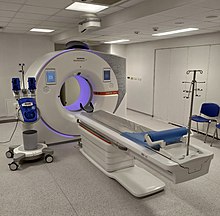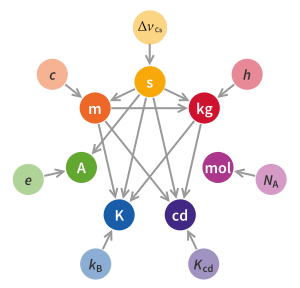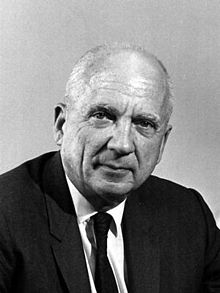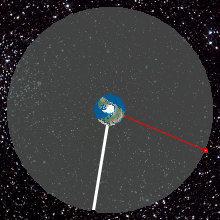Portal:Physics
| Physics Portal Main Page | Physics Textbook | Wikiprojects and things to do |
The Physics Portal


Physics is the scientific study of matter, its fundamental constituents, its motion and behavior through space and time, and the related entities of energy and force. Physics is one of the most fundamental scientific disciplines. A scientist who specializes in the field of physics is called a physicist.
Physics is one of the oldest academic disciplines. Over much of the past two millennia, physics, chemistry, biology, and certain branches of mathematics were a part of natural philosophy, but during the Scientific Revolution in the 17th century, these natural sciences branched into separate research endeavors. Physics intersects with many interdisciplinary areas of research, such as biophysics and quantum chemistry, and the boundaries of physics are not rigidly defined. New ideas in physics often explain the fundamental mechanisms studied by other sciences and suggest new avenues of research in these and other academic disciplines such as mathematics and philosophy.
Advances in physics often enable new technologies. For example, advances in the understanding of electromagnetism, solid-state physics, and nuclear physics led directly to the development of technologies that have transformed modern society, such as television, computers, domestic appliances, and nuclear weapons; advances in thermodynamics led to the development of industrialization; and advances in mechanics inspired the development of calculus. (Full article...)
The electron (
e−
, or
β−
in nuclear reactions) is a subatomic particle with a negative one elementary electric charge. Electrons belong to the first generation of the lepton particle family, and are generally thought to be elementary particles because they have no known components or substructure. The electron's mass is approximately 1/1836 that of the proton. Quantum mechanical properties of the electron include an intrinsic angular momentum (spin) of a half-integer value, expressed in units of the reduced Planck constant, ħ. Being fermions, no two electrons can occupy the same quantum state, per the Pauli exclusion principle. Like all elementary particles, electrons exhibit properties of both particles and waves: They can collide with other particles and can be diffracted like light. The wave properties of electrons are easier to observe with experiments than those of other particles like neutrons and protons because electrons have a lower mass and hence a longer de Broglie wavelength for a given energy.
Electrons play an essential role in numerous physical phenomena, such as electricity, magnetism, chemistry, and thermal conductivity; they also participate in gravitational, electromagnetic, and weak interactions. Since an electron has charge, it has a surrounding electric field; if that electron is moving relative to an observer, the observer will observe it to generate a magnetic field. Electromagnetic fields produced from other sources will affect the motion of an electron according to the Lorentz force law. Electrons radiate or absorb energy in the form of photons when they are accelerated. (Full article...)
Did you know -

- ...that on November 2009, CERN's Large Hadron Collider became the world's highest energy particle accelerator?
- ...that 2005 was endorsed by the United Nations as the World Year of Physics?
Selected image -

Related portals
November anniversaries
- 1952 - detonation of the first Hydrogen bomb, code named "Ivy Mike".
- 1947 - invention of the first transistor, between November 17 to December 23. APS.
- 1930 - Patent granted for Einstein-Szilard refrigerator designed by Albert Einstein and Leó Szilárd. APS.
- 1919 - Elmer Imes's published work presented the first accurate measurement of the distance between atoms in molecules with high resolution infrared spectroscopy. APS.
- 1915 – Einstein's presentation to the Prussian Academy of Science specifies how the geometry of space and time is influenced by whatever matter is present. (see: General relativity and APS)
- 1895 - Wilhelm Conrad Roentgen discovers X-rays.
- 1887 - Michelson–Morley experiment provided strong evidence against the luminiferous ether. APS.
- 1872 - death of Mary Somerville who gained an international reputation as a scientist in the intervals of raising a family of six children. APS
- 1783 - John Michell predicted the existence of black holes, and the possibility of a luminous twin to aid in detection. APS
- 1676 – using his first quantitative measurement of the speed of light, Ole Rømer accurately predicts the delay of eclipse of Io
Births
- 1934 – Carl Sagan
- 1932 - Melvin Schwartz
- 1929 - Richard E. Taylor
- 1925 - Simon van der Meer
- 1902 - Eugene Wigner
- 1837 - Johannes Diderik van der Waals
- 1867 - Marie Curie (Nov. 7)
- 1828 - Balfour Stewart
- 1878 - Lise Meitner (Nov. 7)
- 1887 - Henry Moseley
- 1888 - C V Raman (Nov. 7)
- 1892 - Dmitri Skobeltsyn (Nov. 24)
General images
Categories

Fundamentals: Concepts in physics | Constants | Physical quantities | Units of measure | Mass | Length | Time | Space | Energy | Matter | Force | Gravity | Electricity | Magnetism | Waves
Basic physics: Mechanics | Electromagnetism | Statistical mechanics | Thermodynamics | Quantum mechanics | Theory of relativity | Optics | Acoustics
Specific fields: Acoustics | Astrophysics | Atomic physics | Molecular physics | Optical physics | Computational physics | Condensed matter physics | Nuclear physics | Particle physics | Plasma physics
Tools: Detectors | Interferometry | Measurement | Radiometry | Spectroscopy | Transducers
Background: Physicists | History of physics | Philosophy of physics | Physics education | Physics journals | Physics organizations
Other: Physics in fiction | Physics lists | Physics software | Physics stubs
Physics topics
Classical physics traditionally includes the fields of mechanics, optics, electricity, magnetism, acoustics and thermodynamics. The term Modern physics is normally used for fields which rely heavily on quantum theory, including quantum mechanics, atomic physics, nuclear physics, particle physics and condensed matter physics. General and special relativity are usually considered to be part of modern physics as well.
More recognized content
Associated Wikimedia
The following Wikimedia Foundation sister projects provide more on this subject:
-
Commons
Free media repository -
Wikibooks
Free textbooks and manuals -
Wikidata
Free knowledge base -
Wikinews
Free-content news -
Wikiquote
Collection of quotations -
Wikisource
Free-content library -
Wikiversity
Free learning tools -
Wikivoyage
Free travel guide -
Wiktionary
Dictionary and thesaurus
















































































